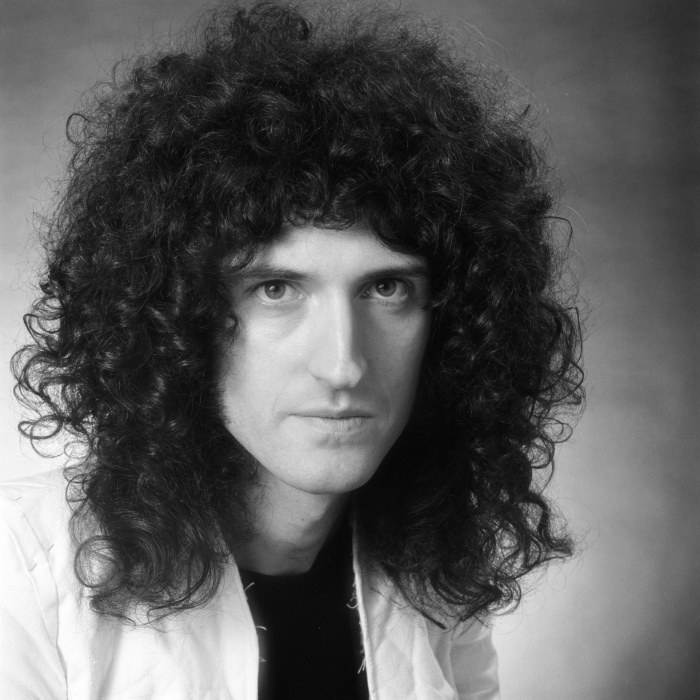12-31-1980 – Circus Magazine
For Queen, a royal tour and a triumphant year
by Richard Hogan
Queen has never been a band to do things in a predictable way. Take the exclusive party that followed the foursome’s final evening of Madison Square Garden shows on September 30. Serving cocktails was a bevy of luscious waitresses wearing tight stockings, high-heeled shoes, oh-so-brief bikini bottoms. . . and nothing else.
Freddie Mercury, Brian May, Roger Taylor and John Deacon couldn’t have been more pleased with the bash, yet the band didn’t want to encourage accusations of sexism. There had been plenty of those after the pinup pink poster of 50 nude female cyclists had appeared inside the Jazz album in 1978. The solution? Hire young men dressed only in shoes and gym shorts to serve drinks to the ladies? That’s just what Queen did.
The three Garden dates capped a world tour that not only put Queen back on the map, but stretched the boundaries of rock terrain for 1980. Here was a group of veterans who fit no particular musical category, with a ninth album, The Game, which had produced no fewer than four hit singles (including’ “Save Me” in Europe). Here was an outfit that recorded and toured according to its own schedule; whether an LP took two weeks or two years was immaterial as long as Queen could achieve the level of perfection desired.
And here was a rock band about to complete a unique movie assignment. Members of Queen have scored substantial segments of the Universal sci-fi spectacular, Flash Gordon.
“We had a certain amount of the music done before seeing any footage,” guitarist Brian May explained in California. “John, Freddie, Roger and I sat down together and said, `I’ll take this scene and I’ll take this one.’ ” It was May’s task to write Flash’s theme, the vocal tune which recurs throughout the picture.
While Brian was busy with Flash, singer/pianist Freddie Mercury decided to work on a motif for villain Ming the Merciless. Drummer Roger Taylor composed the love theme for Flash and Dale, and bassist John Deacon scored the “Arboria” sequence.
Flash Gordon spotlights one group-written musical collage of the kind Queen fans have all been waiting for. “In the last 15 minutes of the film,” said May, “in the battle sequence where Vultan’s men and Flash battle Ming’s army, all the themes converge.” The Game, the Flash Gordon music and the forthcoming Queen’s Greatest Hits add up to a mountainous recorded output for the band in just a little over a year. All this music hardly gluts the market, though; even with the Greatest Hits package inevitably on the way, nearly 2 million American fans have bought The Game, an album that includes many of those hits they’ll probably buy again. “Another One Bites the Dust” is Queen’s most popular hit 45 since “We Are The Champions” – a record that has sold a million-plus, making it one of those industry rarities, a platinum single. Queen expects sales of over a million and a half for “Bites the Dust” in the U.S. alone. At press time, The Game was poised high on the LP chart for the 14th consecutive week. During most of those weeks Queen had been busy playing live to massive crowds in 45 cities around the world.
One explanation for Queen’s continued grip on a paying audience of over a million is this: Despite the backstage dissipation for which Queen is notorious, the four musicians care about their work. Eric Clapton added even more credibility to Queen’s work-ethic image when he observed recently that Brian May was a top-flight guitarist. “It makes me very happy to hear that,” said May when he heard about Clapton’s verdict. “Coming from him that means a lot to me. Eric Clapton was one of the people who obviously was a big influence on me. Clapton’s one of the guys who actually got me to play back in the days of the Crawdaddy Club when people used to scrawl `Clapton is God’ on the wall.” The sound of lead guitar in mainstream rock has changed since Clapton’s days as a Yardbird and a household deity; but with musicians like May in the band, Queen, if not “God,” is certainly king.

